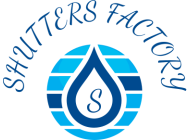Lubricating Shutters: Keep Them Moving Freely with Light Oil
Over time, the moving parts of shutters can become stiff and squeaky from friction and wear. A periodic lubrication maintenance routine keeps hinges, pins, and hardware sliding smoothly for years. The right lubricant also protects metal components from rust and corrosion. This article covers best practices for lubricating shutters using light machine oil.
Why Lubricate Shutters
Lubrication is key preventative maintenance for shutters. Here’s why it’s important:
- Reduce friction and wear – Lubricant minimizes abrasive forces on components.
- Avoid damage from stuck parts – Forcing rusted parts leads to breakage. Proper lubrication prevents seizing.
- Silence squeaks and creaking – Lubricant eliminates noises from dry rubbing parts.
- Rust prevention – Oil forms a protective barrier against moisture on metal pieces.
- Extend lifespan – Well-lubricated shutters operate smoothly for decades.
- Improve function – Shutters open and close effortlessly with less sticking.
Regular lubrication makes operating shutters a pleasure rather than a struggle.
What to Lubricate on Shutters
Any hardware components that move or pivot should be lubricated. This includes:
- Hinges – The joint pin and knuckle where leaves pivot.
- Latching hardware – Arms, springs, pins, and strike plates.
- Lift rods – The threaded ends and tilt bar guide rings.
- Holdbacks – The rotating joint and catch arm.
- Hinge pins – The pins that allow slats to tilt open and closed.
- Decorative hardware – Joints on shutter dogs, buttons, and pulls.
Proper lubrication on these friction points prevents noisy and sticky operation.
How Often to Lubricate Shutters
Shutters should be lubricated at least every 1-2 years. More frequent lubrication of every 4-6 months is a good idea if shutters get heavy use or are exposed to salt air.
Signs that shutters are overdue for lubrication include:
- Grinding, scraping or squeaking noises when operating
- Sticking, stiff movement, or jumpy motion
- Rust appearing on metal hardware parts
- Having to use excessive force to open or close them
Use these cues to recognize when it’s time to lubricate shutters again.
Selecting the Right Lubricant
Not just any oil will do. The lubricant used on shutters should meet these criteria:
- Penetrating – Able to seep into tight crevices between moving parts. Sprays work well.
- Low viscosity – Thin, lightweight oil that flows easily without stickiness.
- Moisture displacing – Contains anti-corrosion additives to prevent rust.
- Won’t attract dirt – A clean oil without gummy residues.
- Won’t harm finishes – Does not stain or damage wood or painted surfaces.
The ideal lubricant for shutters is a lightweight, penetrating machine oil or spray lubricant.
Step-By-Step Lubrication Procedure
Lubricating shutters is a simple process that goes as follows:
1. Clean Surfaces
Wipe away built up dirt, grime, and existing lubricant residue from hardware using a clean rag. Remove any surface debris that could contaminate the lubricant.
2. Operate Components
Open and close the shutters, testing all moving parts through their full range of motion to expose areas in need of lubrication.
3. Apply Lubricant
Use an oil can or spray bottle to apply a thin coat of lubricant onto hinges, pivot points, latch hardware, lift rod ends, and any squeaky spots. Shutters don’t need heavy grease.
4. Operate and Reapply
Open and close shutters again to work oil into all crevices. Reapply additional light lubricant to any areas still squeaking or sticking.
5. Remove Excess
Wipe away any globs of excess lubricant with a clean rag. Just a thin film on surfaces is needed.
6. Test Operation
Fully open and close shutters to ensure full smooth and quiet functionality has been restored.
Repeat lubrication annually or biannually to maintain optimum function.
Lubricating Specialty Shutters
Alternative shutter materials beyond wood each have specific lubrication requirements:
Vinyl – Use silicone spray lubricants to prevent vinyl warping or cracking from petroleum oils.
Metal – Apply penetrating oils able to release stuck rusty metal parts. Use anti-seize lubricants on stainless steel.
Composite – Use dry lubricants like powdered graphite that won’t damage composite materials.
Plastic – Silicone-based lubricants work best on plastics. Avoid chemical reactions from petroleum lubricants.
Apply the appropriate specialty lubricant recommended for your type of shutters.
Caution When Over-Lubricating
While proper lubrication improves shutter operation, over-lubricating can create problems:
- Oil dripping down shutters leaves ugly stains.
- Oil attracts dirt and dust, gumming up shutter operation.
- Excess oil prematurely weakens paint or finishes.
- Oil pooling in hinges hampers motion rather than helping.
- Splattered oil slicken floors, walls, and surfaces below shutters.
Applying a very thin layer is key. Buff off any excess lubricant.
Hiring a Professional for Lubrication
If accessing hard-to-reach lubrication points or handling the installation intricacies of certain shutter types is daunting, consider hiring a professional shutter contractor to lubricate them.
Experienced pros have several advantages:
- Familiarity with common shutter lubrication needs
- Ability to fully detach shutters to lubricate all hidden parts
- Knowledge of individual component functions and wear patterns
- Specialized tools to thoroughly clean old lubricant before reapplication
- Access to commercial-grade lubricants and sprayers
- Efficiency from lubricating shutters daily
Professional lubrication ensures a thorough job without hassles.
The Benefits of Proper Lubrication
With routine lubrication:
- Shutters operate silently and effortlessly
- Hardware components are protected from wear and rust
- Original shutters function like new for decades
- Costly repairs from seized parts are avoided
Don’t let stiff, squeaky shutters become an annoyance. Our experts specialize in thorough shutter lubrication services using the optimal lubricant for your specific shutters. Contact us today to restore smooth, quiet function.

Leave a Reply